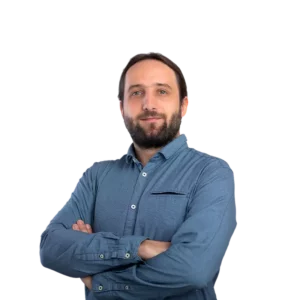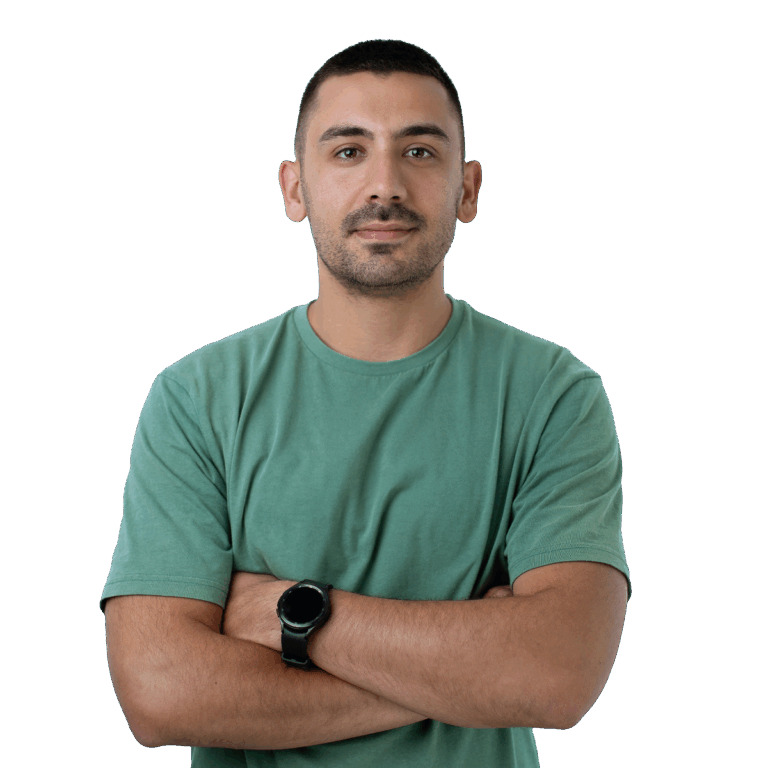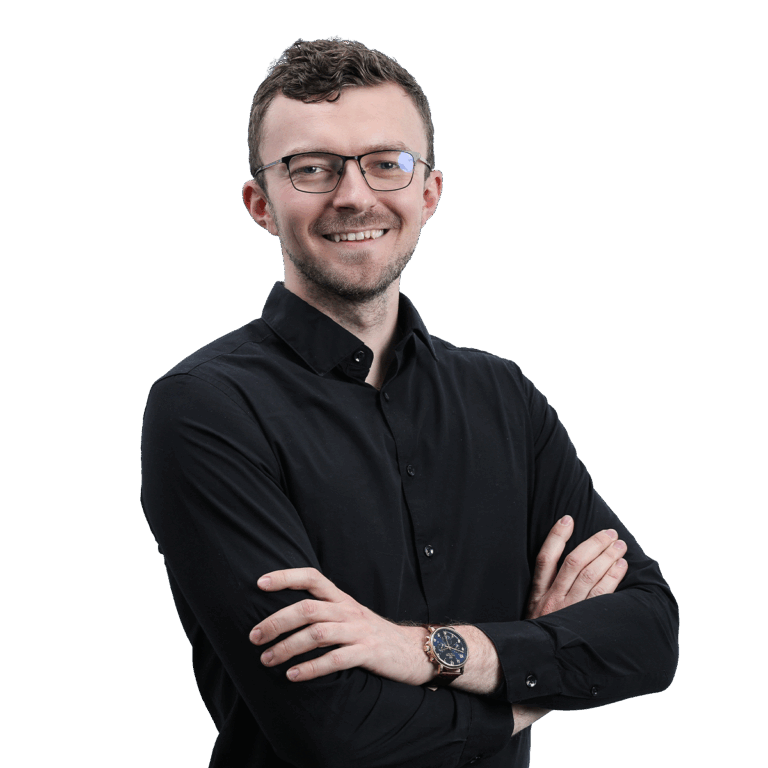ENG
- Branchen
- Finanzen
Nearshore-Softwareentwicklung für den Finanzsektor – sicher, skalierbar und Compliance-gerechte Lösungen für Banking, Zahlungsverkehr und APIs.
- Einzelhandel
Softwareentwicklung für den Einzelhandel – E-Commerce, Kassensysteme, Logistik und KI-gestützte Personalisierung durch unsere Nearshore-Engineering-Teams.
- Verarbeitende Industrie
Nearshore-Softwareentwicklung für die Industrie – ERP-Systeme, IoT-Plattformen und Automatisierungstools zur Optimierung industrieller Abläufe.
- Finanzen
- Was wir tun
- Services
- Technologien
- Kooperationsmodelle
Kooperationsmodelle passend zu Ihren Bedürfnissen: Komplette Nearshoring Teams, deutschsprachige Experten vor Ort mit Nearshoring-Teams oder gemischte Teams mit unseren Partnern.
- Arbeitsweise
Durch enge Zusammenarbeit mit Ihrem Unternehmen schaffen wir maßgeschneiderte Lösungen, die auf Ihre Anforderungen abgestimmt sind und zu nachhaltigen Ergebnissen führen.
- Über uns
- Wer wir sind
Wir sind ein Full-Service Nearshoring-Anbieter für digitale Softwareprodukte, ein perfekter Partner mit deutschsprachigen Experten vor Ort, Ihre Business-Anforderungen stets im Blick
- Unser Team
Das ProductDock Team ist mit modernen Technologien und Tools vertraut und setzt seit 15 Jahren zusammen mit namhaften Firmen erfolgreiche Projekte um.
- Wozu Nearshoring
Wir kombinieren Nearshore- und Fachwissen vor Ort, um Sie während Ihrer gesamten digitalen Produktreise optimal zu unterstützen. Lassen Sie uns Ihr Business gemeinsam auf das nächste digitale Level anheben.
- Wer wir sind
- Unser Leistungen
- Karriere
- Arbeiten bei ProductDock
Unser Fokus liegt auf der Förderung von Teamarbeit, Kreativität und Empowerment innerhalb unseres Teams von über 120 talentierten Tech-Experten.
- Offene Stellen
Begeistert es dich, an spannenden Projekten mitzuwirken und zu sehen, wie dein Einsatz zu erfolgreichen Ergebnissen führt? Dann bist du bei uns richtig.
- Info Guide für Kandidaten
Wie suchen wir unsere Crew-Mitglieder aus? Wir sehen dich als Teil unserer Crew und erklären gerne unseren Auswahlprozess.
- Arbeiten bei ProductDock
- Newsroom
- News
Folgen Sie unseren neuesten Updates und Veröffentlichungen, damit Sie stets über die aktuellsten Entwicklungen von ProductDock informiert sind.
- Events
Vertiefen Sie Ihr Wissen, indem Sie sich mit Gleichgesinnten vernetzen und an unseren nächsten Veranstaltungen Erfahrungen mit Experten austauschen.
- News
- Blog
- Kontakt

04. Juni 2025 •2 minutes read
Unlocking the future of search: Insights from CTO Jovica Zorić
Jovica Zorić
Chief Technology Officer
At our recent Friday Talk, Jovica Zorić, our CTO, took us on an insightful journey Towards smarter search, exploring the evolution of search methodologies—from simple pattern matching to advanced AI-driven techniques.
Jovica shared his hands-on experiences and experiments in developing smarter search functionalities.
Exploring the foundations of search
His exploration began with the Model Context Protocol (MCP), a client-server architecture that enables large language models (LLMs) to interact with various systems. In this case, he focused on using MCP to facilitate seamless interaction with PostgreSQL. This initial exploration triggered a deeper dive into the challenges of creating effective e-commerce search solutions.
To illustrate his points, Jovica used a real-world dataset of UK products from Kaggle, providing a practical foundation for the demonstration. He started with traditional search techniques, beginning with simple wildcard searches using SQL’s “LIKE/ILIKE” operator. While straightforward, this method struggles with variations and typos.
To address these limitations, he introduced fuzzy search using PostgreSQL extensions like pg_trgm, which enhance search accuracy by allowing typo tolerance and approximate matching. However, while fuzzy search improves the handling of misspellings, it doesn’t fully capture the meaning behind a query. This is where full-text search in PostgreSQL comes into play.
Transitioning to AI-powered search
Jovica then explored PostgreSQL’s advanced full-text search capabilities, explaining how they enable more sophisticated term matching and ranking. Considering both the relevance and frequency of words, this approach significantly refines search accuracy.
He also demonstrated how combining fuzzy search with full-text search creates a robust and flexible solution for handling different queries. He also mentioned dedicated search solutions like Elasticsearch, Typesense, and Qdrant. While PostgreSQL provided a solid foundation, these tools offer specialized search capabilities and the best choice ultimately depends on specific requirements.
The talk then transitioned into AI-powered search, where Jovica introduced vector embeddings—a technique that transforms text into numerical representations of semantic meaning. He explained how cosine distance measures similarity between vectors, allowing searches to be based on meaning rather than just keywords.
To implement this, he leveraged the pg_vector extension in PostgreSQL, which enables efficient vector searches. He also showcased an embedding server written in Python, converting search queries into vectors. This allowed for natural language queries like “phone with the biggest battery” to return relevant results based on intent rather than exact wording.
Enhancing search with large language models
Finally, Jovica integrated LLMs to enhance the search process further. He demonstrated how LLMs refine search results by understanding context and intent in natural language queries. For example, when asked about the “best budget camera for wildlife photography,” the LLM could identify and highlight products with specific features, such as high frames per second (FPS) for capturing fast action. This showed how AI-driven search goes beyond traditional methods, delivering greater accuracy and relevance.
Throughout his presentation, Jovica emphasized the importance of choosing the right search technique for the specific use case. From simple pattern matching and dedicated solutions to AI-enhanced search, his demonstrations showcased the strengths and limitations of each approach, highlighting how they work together to create smarter search functionalities.
Explore our blog section for upcoming captivating topics that we’ll be sharing with you soon.
Tags:Skip tags

Jovica Zorić
Chief Technology OfficerJovica is a techie with more than ten years of experience. His job has evolved throughout the years, leading to his present position as the CTO at ProductDock. He will help you to choose the right technology for your business ideas and focus on the outcomes.


